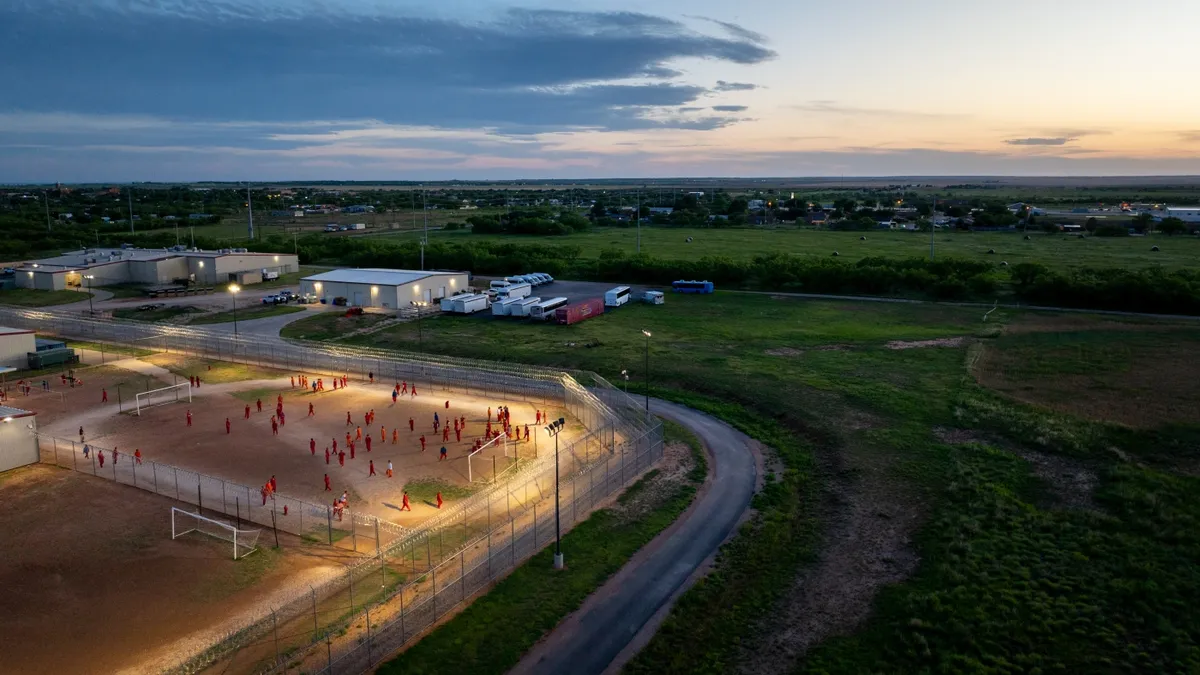
The Supreme Court made a significant ruling on Friday, extending a preliminary injunction that pauses the deportations of Venezuelan immigrants in northern Texas, a decision rooted in the Alien Enemies Act. This historic law, originally enacted in the 18th century, allows for the expedited deportation of foreigners considered a threat to the United States. The court's decision underscores the challenges surrounding immigration law and due process in the current political climate.
President Trump previously invoked the Alien Enemies Act to facilitate the rapid deportation of individuals deemed dangerous. However, the Supreme Court determined that the government failed to provide adequate time for individuals at a Texas detention center to contest their deportation orders. The ruling overruled a decision made by the Fifth Circuit Court of Appeals, which claimed it lacked jurisdiction over the case and suggested the Venezuelans had appealed prematurely following a lower court's ruling against them.
In an unsigned opinion, the Supreme Court highlighted that the District Court had effectively denied the detainees their rights by not acting for an extended period—14 hours and 28 minutes, rather than the previously stated 42 minutes. This delay had a significant impact, as it prevented the court from issuing an injunction to protect those facing imminent threats of severe and irreparable harm. The ruling stated, “Accordingly, we vacate the judgment of the Court of Appeals,” emphasizing the urgency of the situation.
The Supreme Court's order is intended to preserve its jurisdiction regarding the case while allowing lower courts to determine the appropriate notice period for individuals facing expedited removal under the Alien Enemies Act. Importantly, the ruling did not directly address the legality of Trump's invocation of the act, but it reaffirmed a long-standing legal principle: “no person shall be removed from the United States without opportunity, at some time, to be heard.” This statement reinforces the importance of due process in immigration proceedings.
Justice Samuel Alito dissented, joined by Justice Clarence Thomas, arguing that the Supreme Court intervened prematurely and lacked the authority to grant relief. President Trump reacted strongly to the ruling, expressing concerns on social media that the court's decision would enable more criminals to enter the U.S. He thanked Justices Alito and Thomas for their dissenting opinions, stating that the ruling would hinder his ability to fulfill his presidential duties.
Friday's ruling signals that the Supreme Court is closely monitoring the actions of the Trump administration regarding swift removals. Numerous lawsuits surrounding the Alien Enemies Act and other immigration-related issues have raised questions about potential violations of due process. The Supreme Court referenced the case of Kilmar Abrego Garcia, a Maryland resident allegedly deported to El Salvador despite a 2019 order prohibiting his removal to that country. This case illustrates the complexities and challenges faced by the Trump administration in handling deportations.
The Supreme Court's intervention in the Alien Enemies Act case highlights the ongoing legal battles surrounding immigration policy and the critical need for due process. As the court continues to navigate these issues, the implications for Venezuelan immigrants and others facing expedited deportations remain significant. The balance between national security and individual rights continues to be a contentious topic in the realm of immigration law.